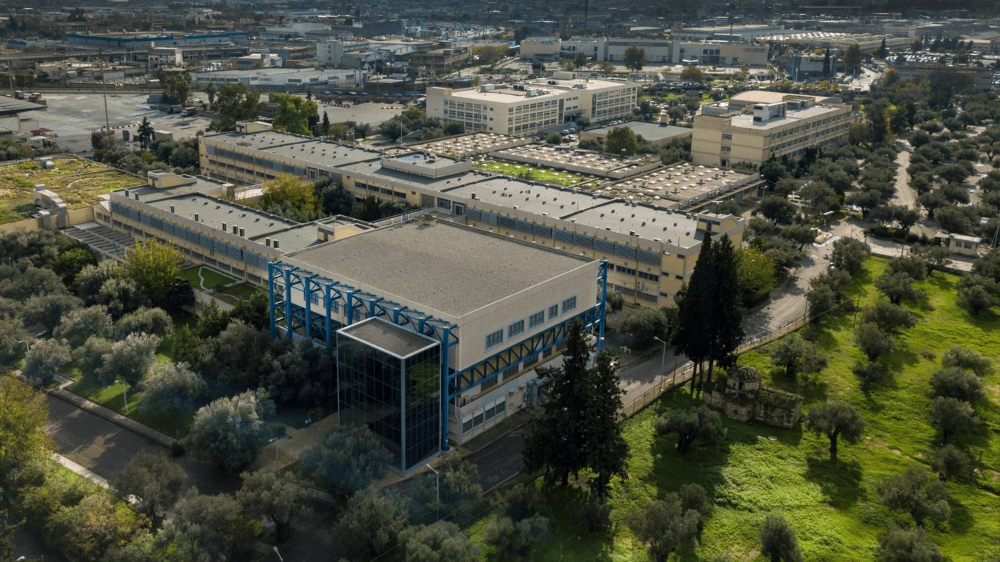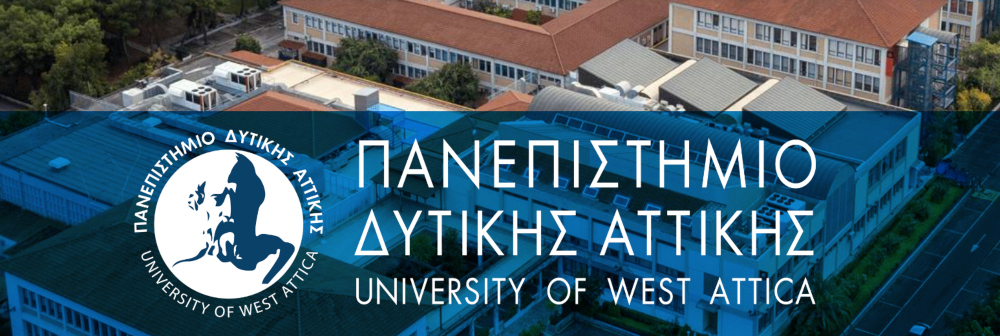The web portal Study in Greece is campaigning for the promotion and international visibility of Greek Universities and the comparative educational advantages of our country. In particular, the campaign focuses on the foreign language study programmes that Greek Universities offer to Greek and international students. The initiative is supported by the General Secretariat of Higher Education of the Ministry of Education and Religious Affairs and the General Secretariat for Greeks Abroad and Public Diplomacy of the Ministry for Foreign Affairs. In this context, a number of educational programmes and actions are presented in detail on a regular basis, such as undergraduate and postgraduate programmes, summer schools etc, to inform international students about the many foreign language options offered by Greek Universities.
Study in Greece interviewed Professor Charalampos Z. Patrikakis, of the Department of Electrical & Electronics Engineering of the University of West Attica (UNIWA), about the MSc in Artificial Intelligence and Deep Learning offered by the university, the programme’s features and what it has to offer to international students.
 Charalampos Z. Patrikakis is a Full Professor at the Department of Electrical & Electronics Engineering of University of West Attica, and Director of the MSc in Artificial Intelligence and Deep Learning. He is also Director of the COmputer Networks & SErvices Research Laboratory (CoNSeRT) at UNIWA Assistant Editor In Chief (Special Issues) of IEEE IT Pro Magazine, member of the Technical Chamber of Greece, and counselor of the IEEE student department of University of West Attica. He has participated in more than 32 National, European and International programmes, in 16 of which he has been involved as technical coordinator or principal researcher. He is a member of the editorial committee of more than 50 international journals and conferences.
Charalampos Z. Patrikakis is a Full Professor at the Department of Electrical & Electronics Engineering of University of West Attica, and Director of the MSc in Artificial Intelligence and Deep Learning. He is also Director of the COmputer Networks & SErvices Research Laboratory (CoNSeRT) at UNIWA Assistant Editor In Chief (Special Issues) of IEEE IT Pro Magazine, member of the Technical Chamber of Greece, and counselor of the IEEE student department of University of West Attica. He has participated in more than 32 National, European and International programmes, in 16 of which he has been involved as technical coordinator or principal researcher. He is a member of the editorial committee of more than 50 international journals and conferences.
Please describe us briefly the features and the basic rationales of the MSc in Artificial Intelligence and Deep Learning.
The MSc aims to address the market demand for professionals capable of designing, developing and applying artificial intelligence and deep learning algorithms in various sectors of the economy including health, industry, education (e.g., emotional intelligence and affect cognition), engineering (e.g., unmanned vehicles) and culture. Graduates will be able to combine artificial intelligence and deep learning techniques with other technologies like big data and analytics, for decision making. Emphasis of the curriculum is placed on providing the students with hands-on experience: educational material, projects and tools from the Deep Learning Institute of NVIDIA are integrated in the curriculum, while students are given direct access to GPU infrastructure and hardware throughout their studies.
 Given that the courses are taught in English, why should an international student choose this MSc?
Given that the courses are taught in English, why should an international student choose this MSc?
The MSc is oriented towards achieving scientific and technological excellence in the field of Artificial Intelligence and Deep Learning through Project-based learning. This is pursued through collaboration with researchers, academics and professionals around the world, providing students with the theoretical and practical knowledge towards the implementation of solutions that involve deep learning in a wide spectrum of sectors (hands-on experience). In parallel, students get the opportunity to learn about the results of (and at the level which is possible through assignments and Thesis, engage with) state-of-the-art results from the international cooperation of research teams (especially from the Research Laboratories supporting the MSC).
 How do you think that Greece could attract more international students since Greek universities offer high level educational and pioneering postgraduate programmes?
How do you think that Greece could attract more international students since Greek universities offer high level educational and pioneering postgraduate programmes?
Through the dissemination of the high level of scientific achievements of Greek HEIs and Greek academics and researchers, and also by highlighting the safety and high quality standards of living/staying in Greece.
Do you believe that Greece can become an internationally competitive educational destination in the fields of Informatics and Artificial Intelligence?
Yes, especially if the high level of education offered by HEIs, and the high ranking of Greek organisations and institutes in European Research Funding programmes is exploited.
Which has been the output so far? Are you satisfied?
Up to now, especially due to restrictions from the existing legislative framework and administrative processes (i.e. recognition of degrees from non-Greek Universities), Greece is not positioned as high as it deserves.
 Tell us a few things about the University of West Attica – its departments, its spirit and its future plans.
Tell us a few things about the University of West Attica – its departments, its spirit and its future plans.
The University of West Attica (UNIWA) was founded in 2018 after the merger of two metropolitan Technological Education Institutes in the Athens-Egaleo area in Greece, namely, the Technological Education Institute of Athens and the Piraeus University of Applied Sciences. Today UNIWA boasts 26 academic departments organised into 6 faculties that address the educational, scientific, social, cultural and developmental needs of the country in the fields of (a) Social Sciences, Administration and Finance, (b) Engineering, (c) Food Science, (d) Health Care Sciences, (e) Public Health Policies and (f) Fine Arts. UNIWA offers quality undergraduate, graduate and doctoral study programmes in all these fields. It is the third largest university in Greece in terms of enrolled student numbers.
Read also via Greek News Agenda: Associate Professor Grigorios Tsoumakas presents the Msc in Data and Web Science ; Professor Ioannis Karafyllidis presents the MSc in Quantum Computing and Quantum Technologies at the Democritus University of Thrace












